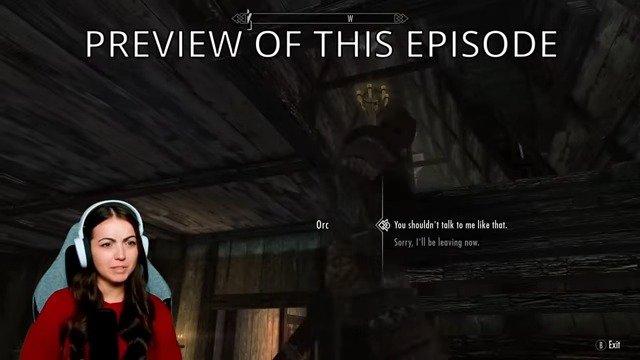Bjørn of Helgåfjord
Himintelgja - Heaven Scraper
So I've been working for a long time on a novel (perhaps more like short novel) length story set in the future, in the year 2153, mostly on another planet (Theta IV) which is an Earth colony starting from 2136 soon after it is discovered.
First, before getting to the main point of this thread, I feel that I should give you more context, so you "know where I'm coming from" and it all makes sense. Sorry it is a bit long but necessary I think.
The planet of Theta IV (just called Theta usually) starts out for some years as a sort of penal colony similar to how Australia was. Criminals who aren't very bad, but still bad enough to get significant jail/prison time, and that behave pretty well, are offered a chance to do hard labor for awhile on Theta to build it up, where they earn their freedom and become free citizens of Theta.
Given that there's very many criminals who work, and they work pretty hard, they're able to build up the capital of Theseus very quickly, relatively speaking, by about 2138. They then disperse, and start their own towns, etc. like Dashwood, Freetown, New Budapest, Fernfield, etc. Groningen Scientific, a fictitious Dutch company by name anyway, is also a pretty influential firm in...research on the planet.
Wanting a sense of strength, unity, and identity, the former inmates launch movements for their own sort of language, even if just by name more than anything else, as well as autonomy of rule, later on. But that's for another time.
SO, the main point of this thread finally! This new language, dubbed "Thetan," would pull from Dutch and other Germanic languages, and probably a few others.
That IS, if I decided to actually implement it. That's where I ask for your opinion...do you think that it would be cool or more interesting as a reader, to read a little bit about this new language?
Here's some examples of words I'm thinking:
"Politzen" = "Police." Derived from the combo of "Polizei" and "Politie" the German and Dutch words for Police.
"Eloden" = "Reloading." Seemed like a Germanic-zation of the English word. Seems legit.
"Cüken" = ??? dunno. Maybe "Cooking"
Also for this one Thetan woman, I made her last name "Cailín" which in Gaelic means "young unmarried woman." The word is used in the lyrics of the Celtic song "Star of the County Down" which is about a young man who is walking down a road, happens upon a "cailín" that is very beautiful and becomes very interested in her. And this is sort of what happens in my story with a particular main character.
Anyways, I know that these languages already have words for things like reloading and police, but I'm thinking that a lot of what are likely ill-educated criminals from all corners of Earth who want to make a national identity of sorts with language, would probably end up jumbling things together!
Anyhoo, I know that was a big wall-o-text so sorry lol.
First, before getting to the main point of this thread, I feel that I should give you more context, so you "know where I'm coming from" and it all makes sense. Sorry it is a bit long but necessary I think.
The planet of Theta IV (just called Theta usually) starts out for some years as a sort of penal colony similar to how Australia was. Criminals who aren't very bad, but still bad enough to get significant jail/prison time, and that behave pretty well, are offered a chance to do hard labor for awhile on Theta to build it up, where they earn their freedom and become free citizens of Theta.
Given that there's very many criminals who work, and they work pretty hard, they're able to build up the capital of Theseus very quickly, relatively speaking, by about 2138. They then disperse, and start their own towns, etc. like Dashwood, Freetown, New Budapest, Fernfield, etc. Groningen Scientific, a fictitious Dutch company by name anyway, is also a pretty influential firm in...research on the planet.
Wanting a sense of strength, unity, and identity, the former inmates launch movements for their own sort of language, even if just by name more than anything else, as well as autonomy of rule, later on. But that's for another time.
SO, the main point of this thread finally! This new language, dubbed "Thetan," would pull from Dutch and other Germanic languages, and probably a few others.
That IS, if I decided to actually implement it. That's where I ask for your opinion...do you think that it would be cool or more interesting as a reader, to read a little bit about this new language?
Here's some examples of words I'm thinking:
"Politzen" = "Police." Derived from the combo of "Polizei" and "Politie" the German and Dutch words for Police.
"Eloden" = "Reloading." Seemed like a Germanic-zation of the English word. Seems legit.
"Cüken" = ??? dunno. Maybe "Cooking"
Also for this one Thetan woman, I made her last name "Cailín" which in Gaelic means "young unmarried woman." The word is used in the lyrics of the Celtic song "Star of the County Down" which is about a young man who is walking down a road, happens upon a "cailín" that is very beautiful and becomes very interested in her. And this is sort of what happens in my story with a particular main character.
Anyways, I know that these languages already have words for things like reloading and police, but I'm thinking that a lot of what are likely ill-educated criminals from all corners of Earth who want to make a national identity of sorts with language, would probably end up jumbling things together!
Anyhoo, I know that was a big wall-o-text so sorry lol.




